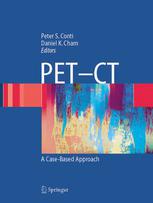

Most ebook files are in PDF format, so you can easily read them using various software such as Foxit Reader or directly on the Google Chrome browser.
Some ebook files are released by publishers in other formats such as .awz, .mobi, .epub, .fb2, etc. You may need to install specific software to read these formats on mobile/PC, such as Calibre.
Please read the tutorial at this link: https://ebookbell.com/faq
We offer FREE conversion to the popular formats you request; however, this may take some time. Therefore, right after payment, please email us, and we will try to provide the service as quickly as possible.
For some exceptional file formats or broken links (if any), please refrain from opening any disputes. Instead, email us first, and we will try to assist within a maximum of 6 hours.
EbookBell Team

4.3
98 reviewsDr. Peter S. Conti is a Professor of Radiology and the Director of the PET Imaging Science Center at the University of Southern California, and is a Fellow of both the American College of Radiology and American College of Nuclear Physicians. He is a pioneer in the development of the clinical applications of PET and more recently PET-CT. He and one of his fellows, Dr. Daniel Cham, have published this PET-CT case-based book, which reveals how PET-CT can be applied in routine clinical scenarios. Leading authorities in the field examine a wealth of original PET-CT cases that showcase both common and uncommon cancers, and the latest PET-CT applications for neurological and cardiovascular disorders. Correlative three-dimensional cross-sectional PET and CT images highlight pathological findings. Each of the clinical applications is accompanied by a concise explanation of the patient history and interpretation of the PET-CT study. Insightful discussions and "pearls and pitfalls" are included to assist in a better understanding of pathology, diagnosis, and imaging approaches. Readers also find important coverage of pathophysiology and technical artifacts. This unique book is ideal for nuclear medicine practitioners, radiologists, and residents, as well as referring clinicians interested in learning more about how this new medical imaging technology can be applied in their patient populations.